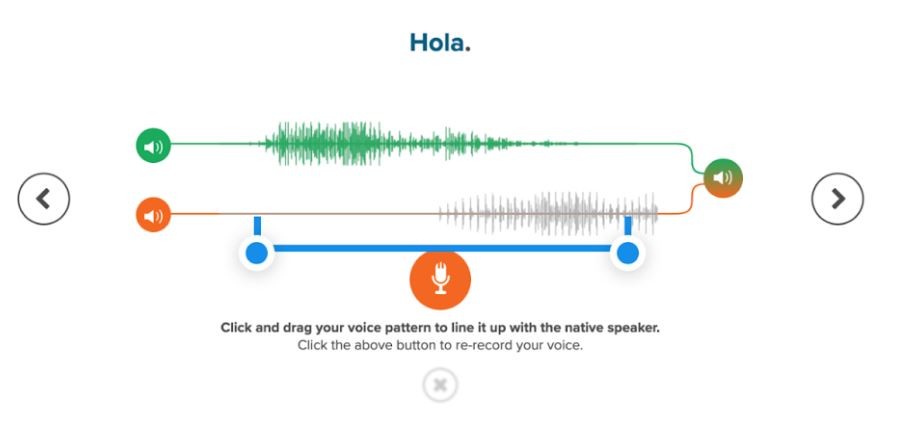Learning How To Learn Pronunciation effectively is crucial for mastering a new language. At LEARNS.EDU.VN, we believe mastering the nuances of pronunciation unlocks fluency and confidence. This guide offers practical strategies and insights to elevate your pronunciation skills and enhance your communication abilities. With this guide, you will become fluent.
1. Deconstruct Lengthy Words into Syllables
Effectively enhancing pronunciation begins with breaking down complex words into their constituent syllables. A syllable generally comprises a cluster of sounds orbiting a vowel. Consider the word “opportunity,” which is comprised of five syllables: “op,” “por,” “tu,” “ni,” and “ty,” each centered around a vowel sound. By dissecting words into syllables, you can accurately pinpoint areas where your pronunciation falters. For instance, you might master the initial and concluding syllables of a word but struggle with the intermediate ones. Addressing each syllable individually enables targeted practice, ensuring comprehensive phonetic accuracy. Once each syllable is mastered, seamlessly reintegrating them can yield flawless word pronunciation.
Furthermore, syllable analysis provides valuable insights into stress placement within words, which is crucial for accurate pronunciation.
2. Grasp the Nuances of Word and Sound Emphasis
Following syllable breakdown, understanding the principles of word and sound emphasis is crucial. In most languages, each word possesses a syllable that carries the primary stress. For example, in English, the word “present” is stressed on the first syllable when used as a noun (“PRE-sent”) but on the second syllable when used as a verb (“pre-SENT”). Recognizing and applying these stress patterns is key to effective communication.
Stress placement can significantly alter word meaning, particularly in English, where it distinguishes between nouns and verbs. Proper emphasis not only clarifies meaning but also enhances listener comprehension.
Emphasis extends beyond individual words to the sentence level. The placement of stress within a sentence can subtly alter its meaning. Consider the sentence, “I need help.” Emphasizing “I” (“I need help”) suggests that it is the speaker who requires assistance, while emphasizing “help” (“I need help”) indicates the specific need for assistance. Mastering these nuances of emphasis is essential for conveying intended meanings effectively.
3. Select and Maintain a Consistent Accent
While language learning exposes you to various dialects and accents, initially focusing on a single accent is advisable. Attempting to juggle multiple accents simultaneously can lead to confusion and hinder progress. Concentrating on one accent allows you to immerse yourself in its unique sounds and nuances, facilitating mastery.
As proficiency grows, your accent naturally adapts to your surroundings. Consistency in accent choice not only streamlines learning but also promotes clarity and confidence in communication. Remember, dedication yields excellence.
4. Engage in Immersive Listening and Conversation with Native Speakers
Immersion in authentic language through listening and conversation with native speakers is invaluable for pronunciation improvement. Listening to native speakers provides exposure to real-world language usage, including accurate word pronunciation, natural phrasing, and intonation patterns. Research confirms that enhanced sound perception directly correlates with increased fluency, emphasizing the importance of auditory input in language acquisition.
Engaging in conversations with native speakers offers opportunities for real-time pronunciation practice and feedback. Comparing your pronunciation to that of native speakers allows for precise identification and correction of errors. Native speakers provide invaluable insights into subtle pronunciation nuances often missed by non-native speakers. Actively seeking and incorporating feedback is essential for refining pronunciation skills.
LEARNS.EDU.VN offers resources to connect with native speakers, facilitating immersive language practice and personalized feedback.
5. Utilize Self-Recordings to Identify Pronunciation Imperfections
Self-recording is a potent tool for identifying and rectifying pronunciation flaws. By recording yourself speaking, you gain an objective perspective on your pronunciation, enabling the detection of errors that might otherwise go unnoticed. Comparing your recordings to those of native speakers facilitates targeted improvement.
Tools such as the Voice Comparison feature in language learning apps visually represent pronunciation, allowing for direct comparison with native speaker recordings. Analyzing waveform discrepancies identifies areas requiring adjustment, enhancing both auditory perception and articulatory precision. Regular self-recording and analysis sessions expedite pronunciation refinement.
6. Enhance Vocal Tract Strength Through Reading Aloud
Reading aloud serves as a workout for vocal tract muscles, bolstering pronunciation proficiency. New languages often introduce sounds or sound combinations absent in your native tongue. Mastering these requires training your vocal tract to produce unfamiliar articulations.
Reading aloud facilitates muscle memory formation, crucial for accurate pronunciation. It provides contextual practice, embedding new sounds within phrases and sentences. Selecting diverse reading materials, such as news articles, children’s books, or social media posts, sustains engagement and enhances learning. Regular reading aloud sessions cultivate fluency and confidence in spoken language.
7. Cultivate Active Listening Skills
Developing acute listening skills is paramount for language acquisition. Actively listening involves focusing intently on how speakers pronounce words and phrases, noting intonation patterns, and identifying stress placement. By training your brain to extract pronunciation information through listening, you accelerate your learning trajectory.
Listening extends beyond mere hearing; it requires conscious effort to discern nuances and subtleties in spoken language. Pay attention to vocal modulations, tonal variations, and rhythmic patterns. By cultivating active listening habits, you attune your ear to the intricacies of the target language, paving the way for improved pronunciation.
LEARNS.EDU.VN offers audio resources designed to hone active listening skills, fostering pronunciation accuracy and comprehension.
8. Leverage Online Dictionaries for Pronunciation Guidance
Online dictionaries are invaluable resources for pronunciation learning. Reputable online dictionaries often provide audio recordings of word pronunciations, along with syllable breakdowns and phonetic transcriptions using the International Phonetic Alphabet (IPA). Consulting online dictionaries when learning new words ensures accurate pronunciation from the outset.
Phonetic transcriptions offer detailed insights into sound articulations, aiding learners in precise pronunciation. Regular consultation of online dictionaries reinforces correct pronunciation habits and fosters linguistic precision.
9. Pay Attention to Tongue Placement
Observing tongue placement and understanding its role in sound production is crucial for pronunciation mastery. Subtle variations in articulatory placement can significantly impact sound accuracy. Linguists refer to the “place of articulation” to describe the points of contact within the vocal tract involved in producing specific sounds.
Awareness of tongue positioning enables precise sound replication. For example, the English “t” sound differs slightly from the Spanish “t” sound in terms of tongue placement. By consciously adjusting tongue placement, learners can achieve greater phonetic accuracy.
10. Transcribe Challenging Words Phonetically
Transcribing difficult words phonetically is a valuable pronunciation strategy. Breaking down words into individual sounds allows for targeted focus on challenging components. Caution is advised: phonetic transcription differs from letter-by-letter analysis, as many sounds are represented by multiple letters.
Phonetic transcription facilitates sound identification and replication. By isolating problematic sounds, learners can concentrate their efforts on mastering specific articulations. Consistent application of phonetic transcription enhances pronunciation accuracy and confidence.
LEARNS.EDU.VN offers phonetic transcription tools to assist learners in dissecting and mastering challenging words.
The Significance of Pronunciation in Language Learning
Pronunciation is paramount in language learning, influencing comprehension and communication effectiveness. Subtle pronunciation errors can distort word meanings, hindering understanding. For instance, in many languages, tonal variations or slight vowel differences distinguish between words with entirely different meanings.
Accuracy in pronunciation fosters clear communication and enhances listener comprehension. Investing in pronunciation training is essential for effective language proficiency and confident interaction.
Tools for Enhancing Pronunciation
Numerous tools facilitate pronunciation improvement, including dictionaries, recording devices, apps, and phonetic reference guides such as the International Phonetic Alphabet (IPA). Language learning apps often incorporate features like voice comparison tools and phonetic transcriptions.
LEARNS.EDU.VN recommends utilizing a combination of resources to optimize pronunciation practice. Voice comparison tools enable learners to visually and audibly compare their pronunciation to native speakers, while phonetic transcriptions provide detailed guidance on sound articulations. Regular practice with these tools yields significant improvements in pronunciation accuracy.
Identifying Languages with Pronunciation Challenges
The difficulty of pronunciation varies depending on your native language. Tonal languages, such as Mandarin Chinese and Thai, pose challenges for English speakers due to their reliance on pitch variations to distinguish word meanings.
Languages with sounds vastly different from those in your native language can also be difficult. For example, the trilled “r” in Spanish often presents difficulties for English speakers. The prevalence of specific sounds across languages also influences learning ease, with common sounds like “m” being relatively easy to pronounce universally.
LEARNS.EDU.VN recognizes the diverse challenges in pronunciation and offers resources tailored to specific languages and learner needs.
Navigating the complexities of pronunciation can seem daunting, but with consistent practice and the right tools, improved pronunciation is achievable.
FAQ: Mastering Pronunciation
1. How can I improve my pronunciation quickly?
- Focus on minimal pairs, record yourself, and get feedback from native speakers.
2. What are the most common pronunciation mistakes?
- Mispronouncing vowel sounds, incorrect stress patterns, and neglecting intonation.
3. Is it possible to achieve a native-like accent?
- Yes, with consistent practice and immersion, achieving a native-like accent is possible.
4. How important is pronunciation compared to grammar and vocabulary?
- Pronunciation is crucial for clear communication, as mispronunciation can lead to misunderstandings.
5. What role does technology play in improving pronunciation?
- Technology offers tools like voice recognition, pronunciation apps, and online dictionaries with audio pronunciations.
6. How can I overcome my fear of speaking due to pronunciation concerns?
- Practice regularly in low-pressure environments, focus on progress, and celebrate small victories.
7. Are there specific exercises to improve certain sounds?
- Yes, targeted exercises focusing on specific sounds, such as tongue twisters and minimal pair drills, can be helpful.
8. How does learning phonetics help with pronunciation?
- Learning phonetics provides a deeper understanding of sound production, enabling more accurate pronunciation.
9. Can watching movies and TV shows improve pronunciation?
- Yes, watching movies and TV shows exposes you to natural speech patterns and helps you internalize correct pronunciation.
10. How often should I practice pronunciation?
- Regular, consistent practice, even for short periods, is more effective than sporadic, lengthy sessions.
LEARNS.EDU.VN provides comprehensive resources to answer these and other pronunciation-related questions, supporting learners at every stage of their journey.
Call to Action
Ready to elevate your pronunciation skills and unlock fluent communication? Explore learns.edu.vn for expert guidance, personalized resources, and interactive tools designed to help you master pronunciation in any language. Contact us at 123 Education Way, Learnville, CA 90210, United States or via Whatsapp: +1 555-555-1212.

